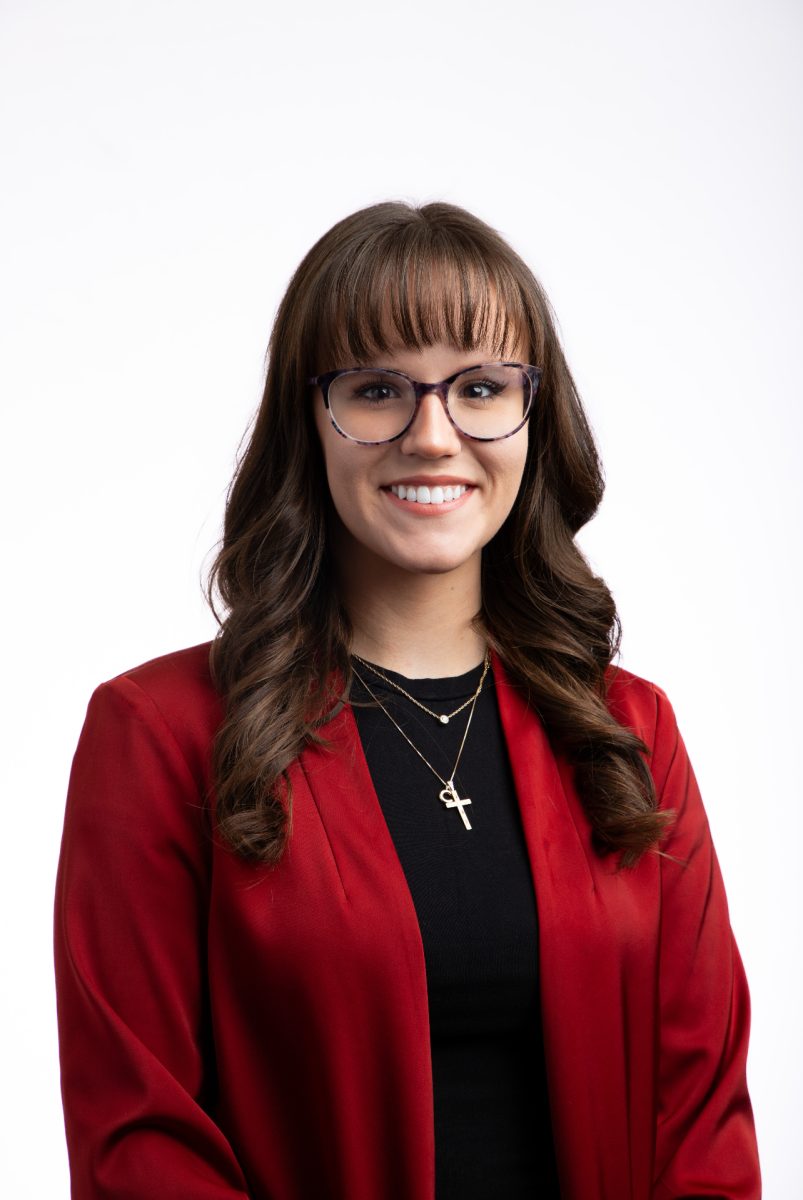“It’s moving along smartly,” Chancellor Carlo Montemagno presents reorganization update to Board of Trustees
March 10, 2018
At a specially scheduled Board of Trustees meeting Friday, Chancellor Carlo Montemagno updated the board on the progress of his academic reorganization plan.
“It’s moving along smartly,” Montemagno said. “We’re continually modifying and changing things.”
There are seven proposed schools which are still in the discussion phase of the Article IX process, Montemagno said.
Advertisement
Those schools include the School of Agricultural Sciences, the School of Humanities, the School of Media, Communications, and Performing Arts, the School of Physical Sciences, the School of Psychological and Behavioral Sciences, the School of Social Sciences and Multicultural Studies, and the School of Transportation.
There are nine schools in the final stages of planning, including the Schools of Analytics and Finance, Applied Engineering and Technology, Architecture, Art and Design, Education, Engineering, Health Services, Human Services, Justice and Public Safety and Managing and Marketing.
The finals plans for the schools in the final stages of planning should be sent out continuously in the upcoming weeks, Montemagno said.
Once the final plans are developed, Montemagno told the board the program changes, or reasonable and moderate extensions, are sent to affected academic units and Graduate Council and Faculty Senate at the same time.
“As you can see there are two places where it goes,” Montemagno said. “One is the academic review, where the plans go to the Faculty Senate and Graduate Council…The other one is contractual, where it goes to academic units and the Faculty Association.”
He said, the faculty can provide feedback about the final plan to the Faculty Senate and Graduate Council. The Faculty Association can also write a report about the final plan which can be sent to the Faculty Senate.
According to Article IX in the Faculty Association’s contract, bargained between the faculty and the administration, RME’s on a school-level must be sent to the affected faculty before it is sent to the Graduate Council and the Faculty Senate; not simultaneously.
Advertisement*
Section 9.05 (4) states that only after the affected faculty have voted on the program change can the Association Provost for Academic Affairs send the RME to the Faculty Senate and Graduate Council.
The last sentence in section 9.05 (4) states, “The APAA will then distribute them to the Faculty Senate and/or Graduate Council and the Association President.”
Higher Education Director of the Illinois Education Association Brett Seferain said if the administration sends final program change proposals at the school-level to the Faculty Senate and Graduate Council before or at the same time as the affected faculty, it will be in violation of the Faculty Association collective bargaining agreement, or the contract between the university’s faculty and the administration.
Seferian said he was a part of the bargaining team that wrote the collective bargaining agreement.
“The Faculty Association has already filed for arbitration that the start of the process and the proposals that violated the contract,” Seferian said. “We have also grieved the dialogue process and may go to arbitration on that.”
The chancellor’s plan also omits any college committees, Seferian said.
In the public comments section of the meeting, Seferian said the Faculty Association is not opposed to change.
“That is just something the administration says to dismiss questions about the reorganization,” Seferian said.
Shared governance is important, but not always easy Seferian said.
Other staff and faculty members shared their perspectives of the university’s future and current state with the board.
Anthony Travelstead, a civil service employee and president of the Civil Service Council said, civil service employees concerns have shifted from the proposed reorganization to the rumored closing of East Campus and the estimated 150 civil service jobs lost due to the closing.
“In our mission statement, we refer to ourselves as a nationally ranked public research university and regional economic catalyst,” Travelstead said. “Hardworking men and women with families, who are part of SIU and are that regional economic catalyst.”
Negative news, including the state budget and closures across campus, are some of the reasons why prospective students don’t attend the university, Travelstead said.
Associate Provost for Academic Programs Lizette Chevalier said East Campus housing is in discussion of being closed but no decision has been made.
Faculty Senate President Kathy Chwalisz also spoke during the public comments section to balance out the anti-change rhetoric she said she imagined would be presented during the meeting today.
“I’m here yang to their yin to remind you that many people on campus are working to change and grow SIUC,” Chwalisz said.
She said Thursday night she received the first three program proposals for the School of Computing, the School of Biology and the School of Earth Systems and Sustainability.
Jay Needham, a professor in the Radio, Television and Digital Media Department, announced to the board during the public comment section a faculty driven initiative to create a new college between the School of Art and Design, School of Architecture, the School of Music, Department of Cinema and Photography, Department of Communication Studies, the School of Journalism, Department of Theatre and the Department of Radio, Television, and Digital Media.
Potential names for the college are, the College of Creativity, the College of creative studies, and the College of the Arts, Media, Architecture, and Communication, Needham said.
“We find that the study and practice of design, arts, media and communication are critically important to the culture, for expression and innovation in our campus and our communities,” Needham said.
The creation of this college will be unique, Needham said. There is no other college in the midwest that combines such diverse courses and degree offerings.
Once the college is created, schools will be able to be created by merging departments without losing the department’s academic credibility.
The college is proposed for the upcoming 2018 fall semester.
Campus editor Amelia Blakely can be reached at ablakely@dailyegyptian.com or on Twitter @AmeilaBlakely.
To stay up to date with all your southern Illinois news, follow the Daily Egyptian on Facebook and Twitter.
Advertisement







Bradley Skelcher • Mar 10, 2018 at 11:18 am
I believe that he should step down as chancellor.